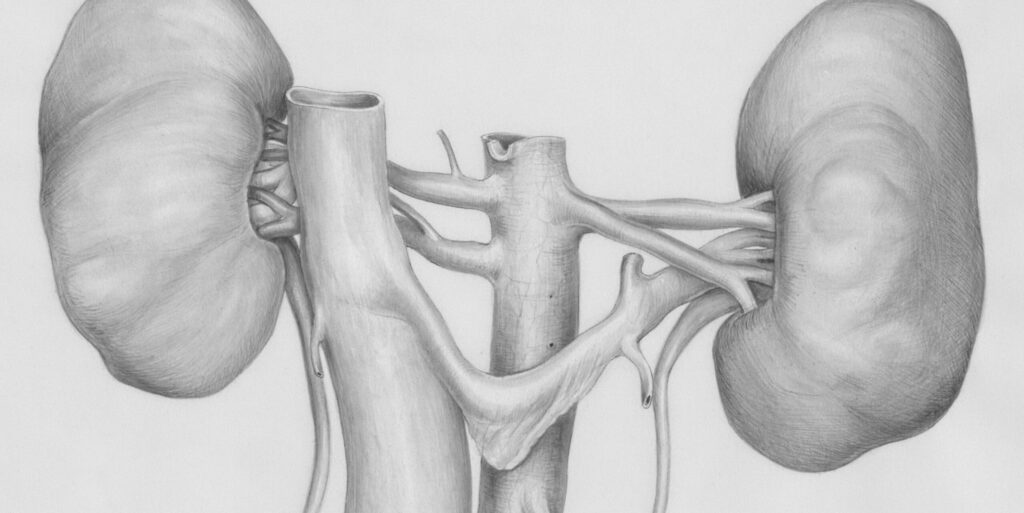Read time 5 minutes
Archith
This insightful blog was written exclusively for Ordinarily Rare by Dr. Jyoti Singh, a seasoned nutritionist with deep expertise in renal diet planning. With years of experience guiding patients through the complexities of kidney care, Dr. Singh brings a rare blend of clinical precision and cultural sensitivity to her work.
Her approach is rooted in the belief that kidney health isn’t just about lab numbers, it’s about nurturing a calm, supportive relationship with food. Drawing from traditional Indian culinary wisdom and evidence-based nutrition, she helps patients across the globe eat wisely, live fully, and heal naturally.
We’re honored to feature her voice on our platform, where her practical strategies and compassionate insights empower both patients and caregivers to make informed, sustainable choices.

Over to Dr. Jyoti Singh
Kidney health is not just about numbers on a report, it’s about building a calm, supportive relationship with food.
Over the years, I’ve seen patients regain strength, stability, and confidence. It is important to understand what truly suits their kidneys.
In Indian homes, meals are woven into family life and tradition. That’s why a renal diet must blend medical precision with cultural sensitivity. It’s not about strict avoidance, instead mindful modification.
1. Practical Renal Diet Strategies Tailored to Indian Eating Habits

Balanced Protein: Just the Right Amount
The kidneys need rest, but the body still needs protein.
Include:
- Egg whites (2–3/day)
- Fresh fish (2–3 times a week, steamed or grilled)
- Soft paneer (small cubes)
- Tofu or lean chicken (boiled or grilled)
- Limited dal: 2–3 tbsp cooked moong or masoor dal
Avoid / Limit:
- Red meat, mutton, organ meats
- Heavy dals (chana, rajma, lobia)
- Processed soy chunks or protein powders
Manage Salt Smartly
Salt control is the single most powerful step you can take.
Include:
- Lemon juice, jeera, hing, methi, pepper, and curry leaves for flavour
- Fresh homemade food instead of packaged snacks
Avoid:
- Pickles, papad, sauces, ketchup, and salted chips
- Restaurant curries, tandoori masala, and soups from packets
- “Low sodium” or “diet salt” are often high in potassium
Keeping Potassium in Check
Potassium helps nerves and muscles work, but excess strains the kidneys.
Low-Potassium Foods (safe in moderation):
- Fruits: apple, guava, papaya, pear, watermelon (small slice)
- Vegetables: bottle gourd, ridge gourd, snake gourd, pumpkin, cabbage, beans, carrots (boiled and drained)
High-Potassium Foods to Limit / Avoid:
- Banana, chikoo, mango, orange, pomegranate, coconut water
- Tomato, spinach, potato, sweet potato, brinjal
- Tender coconut, fruit juices
Tip: Boil high-potassium vegetables, discard the water, then re-cook with spices; this reduces potassium by up to 50%.
Watching Phosphorus & Fluids
Too much phosphorus weakens bones and stresses the kidneys.
Limit or Avoid:
- Cola drinks, chocolates, cheese slices, bakery items, nuts & seeds, oats, mutton
- Packaged processed foods (check for “phos-” on labels)
Include:
- White rice, poha, idli, suji, rice flakes
- Fresh fruits (low potassium ones) and boiled vegetables
- Small amounts of milk (½ cup/day) or rice milk if tolerated
Fluid Management
When fluid restriction is prescribed:
- Count water, tea, coffee, milk, soup, curd, and even fruit portions in your daily limit.
- Suck ice chips, rinse mouth with cold water, or chew mint leaves to reduce thirst.
Indian Meal Ideas for Kidney Health
| Meal Time | Kidney-Friendly Ideas |
|---|---|
| Morning (Empty Stomach) | 1 glass warm water + soaked raisins (if potassium levels are normal) |
| Breakfast | Suji upma with boiled vegetables<br>Poha (without peanuts)<br>Egg-white omelette |
| Mid-Morning | Apple or small guava |
| Lunch | Steamed rice + lauki chana dal (2 tbsp)<br>Boiled salad<br>1 roti |
| Evening Snack | Roasted makhana<br>Murmura bhel (no tomato, no added salt) |
| Dinner | Phulka + ridge gourd sabzi<br>Half cup curd (can be taken at lunch instead) |
2. Challenges and Opportunities in Managing Chronic & Rare Conditions through Nutrition

Awareness and Access
Many patients come to me only after trying generic “renal diets” from the internet, often inappropriate.
Opportunity: Culturally specific guidance using everyday Indian foods builds trust and long-term compliance.
Multiple Health Conditions
Kidney disease rarely stands alone; diabetes, hypertension, and thyroid often accompany it.
Opportunity: Integrated meal planning can balance sugar, pressure, and kidney load together.
Emotional & Cultural Barriers
Food connects deeply with comfort and identity. Sudden restriction creates guilt or rebellion.
Opportunity: Replace judgment with support. Even small, sustainable swaps, like homemade chutneys or lighter curries. They bring results without emotional stress.
Limited Specialist Access
Many smaller towns lack renal dietitians.
Opportunity: Tele-nutrition and digital monitoring. Now they allow patients anywhere to get personalized menus and weekly follow-ups.
3. Actionable Guidance for Patients & Caregivers

For Patients
- Keep a weekly food log; it increases awareness.
- Discuss your lab reports with your nutritionist regularly.
- Be patient. Kidney nutrition is a marathon, not a sprint.
For Caregivers
- Cook one family meal with minor modifications instead of separate “patient food.”
- Include the patient in shopping and meal prep, this builds confidence.
- Observe appetite, swelling, or unusual tiredness and report early.
General Tips
- Avoid unverified “detox” drinks and herbal supplements.
- Stick to regular meal timings as irregular eating strains metabolism.
- Celebrate stable lab values; each one means your care is working.
A Personal Note
Kidney nutrition isn’t about what you give up, it’s about what you choose wisely. Each simple, balanced meal you eat with awareness becomes a step toward healing.
I often remind my patients: Food is medicine when chosen with love and knowledge.
Even small, consistent steps; less salt, lighter meals, more mindfulness can keep your kidneys supported for years.
Important Disclaimer
This article is meant only to give an idea of how a renal diet is planned and what it may look like in daily Indian meals.
It should not be followed strictly by any kidney patient without professional guidance.
Every renal diet must be personalized, depending on the patient’s stage of kidney function, medical reports, and other existing conditions.
There is no single generic diet plan suitable for all renal patients. Always consult your nephrologist and qualified nutritionist before making any dietary changes
Written by
Dr. Jyoti Singh, Nutritionist
Helping patients across globe eat wisely, live fully, and heal naturally.
Website : www.drjyotisingh.com
Facebook : https://www.facebook.com/
Instagram : https://instagram.com/


